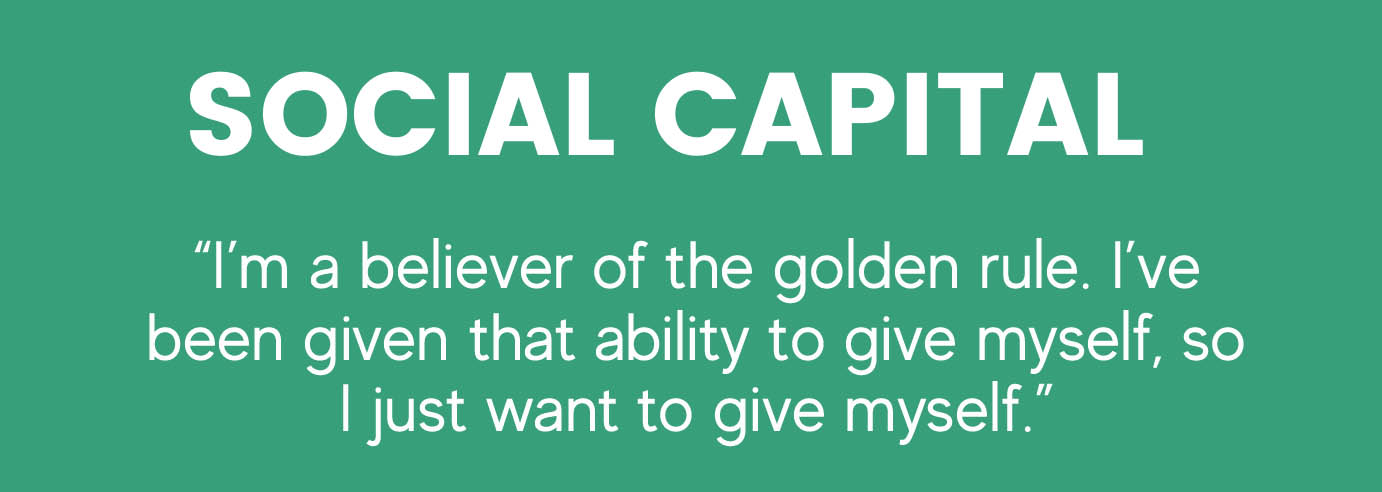In the spring of 2020, a multidisciplinary collaboration of Rutgers University faculty and doctoral students came together to examine the impact of COVID-19 on marginalized communities in New Jersey.
The project, “Putting Stories to Work: Confronting the Pandemic Through New Jersey Narratives,” was funded by the Rutgers University Center for COVID-19 Response and Pandemic Preparedness. The scholars gathered a repository of stories to begin generating conversations and engagement with partners to impact public opinion, advocacy, and public policy in support of communities affected by COVID-19.
“The premise of the Putting Stories to Work project is to learn from the less-told narratives emerging from the COVID emergency. Our findings span communities across New Jersey, racial and ethnic groups, and many social classes,” said Louisa Schein, lead researcher and Associate Professor, Departments of Anthropology and Women’s, Gender, and Sexuality Studies at Rutgers University-New Brunswick. “But our focus is on under-resourced communities and how crises such as pandemics can be handled better and with greater nuance.”
Dr. Schein and Patricia O’Brien-Richardson, Associate Professor of Teaching at Rutgers University’s Edward J. Bloustein School of Planning and Public Policy, worked with Tenisha Malcolm, Director of Cities Programs at The Nature Conservancy (TNC) New Jersey office to craft a partnership as part of TNC’s Cities Network Response and Recovery Working Group.

Relying on extended interviews by Rutgers research assistants Nazsa Baker and Nakeefa Garay ’07, MPP ’10 in a range of communities across New Jersey, researchers sought to amplify diverse perspectives from groups that are often underrepresented in the planning and implementation of local and regional initiatives. The findings revealed starkly different experiences and concerns across different communities, as well as across different class and generational groups.
“While not necessarily generalizable across all underserved communities, research coming out of the partnership is an important step towards including communities that have experienced forms of dispossession,” said Ms. Garay.
New Jersey communities represented in this pool included East Orange, Atlantic City, Mantua, Williamstown, Montclair, Hillside, Blackwood, Weehawken, West Orange, South Orange, Union City, Newark, Irvington, and Swedesboro. Key contact organizations that helped connect the Rutgers team with individuals included The Nature Conservancy, Acenda Integrated Health, the City of East Orange Department of Health, and the City of Irvington.
Between October 2020 and January 2021, the 28 interviewees were asked open-ended questions that spanned topics of social capital and community networks; family, youth, home, and schooling; outdoor environment in relation to mental and physical health; government, politics, and race; and the overall disruption of life.
Based on findings, the team challenged widespread perceptions that urban residents are consistently in desperate need, asserting instead that these communities possess an abundance of social and cultural capital. With evidence of strong networks that provide aid and services to their communities, interviewees were found to be experts on what their communities need. Their narratives of the COVID crisis and emerging situations showed canny recognition of what assets were available to them and what stood to be supplemented or created. The team’s approach was to transform the narratives into policy recommendations for organizations, policymakers, programs, and institutions at multiple levels.
The team recommended that groups should be consulted before designing and/or implementing programs, including block associations, church engagement, women’s groups, nonprofit organizations, book clubs, mutual aid groups, and neighborhood check-ins. Consultations should also include members of the community who may not traditionally be viewed as leaders by program designers but have deep ties to their community despite lack of educational or professional attainment. These community members can provide a unique “on the ground” perspective on what their communities really need. This would prevent the creation of superfluous initiatives or organizations that really aren’t needed.
The research demonstrated that the concerns of individuals and their communities changed as the pandemic wore on and that cash assistance played a crucial role in keeping households intact. Mistrust of the government was significant in communities of color, but this mistrust could be countered by information supplied by community-based organizations in conjunction with government offices.
Rutgers scholars involved in the study included: Patricia O’Brien-Richardson, Ph.D. and Associate Professor Public Health Bloustein School of Planning and Public Policy Rutgers University-New Brunswick; Louisa Schein, Ph.D. and Associate Professor Departments of Anthropology and Women’s, Gender, and Sexuality Studies Rutgers University-New Brunswick; Domingo Morel, Ph.D. and Associate Professor Political Science Rutgers University-Newark; Research Assistants were: Nazsa Baker Ph.D. ’21 and now Assistant Professor of Public Health at Gwynedd Mercy University; and Nakeefa Garay ’07, MPP ’10, Doctoral Candidate, Global Urban Studies Rutgers University – Newark.
To download the full report, visit https://go.rutgers.edu/tncpolicyreport.



